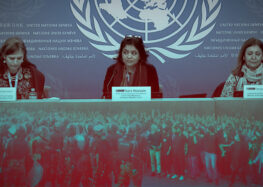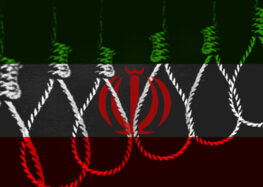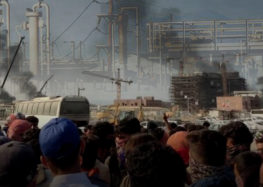Relatives Visit Ethnic Arab Prisoners in Khuzestan Jail Only to Be Handed Corpses Minutes Later
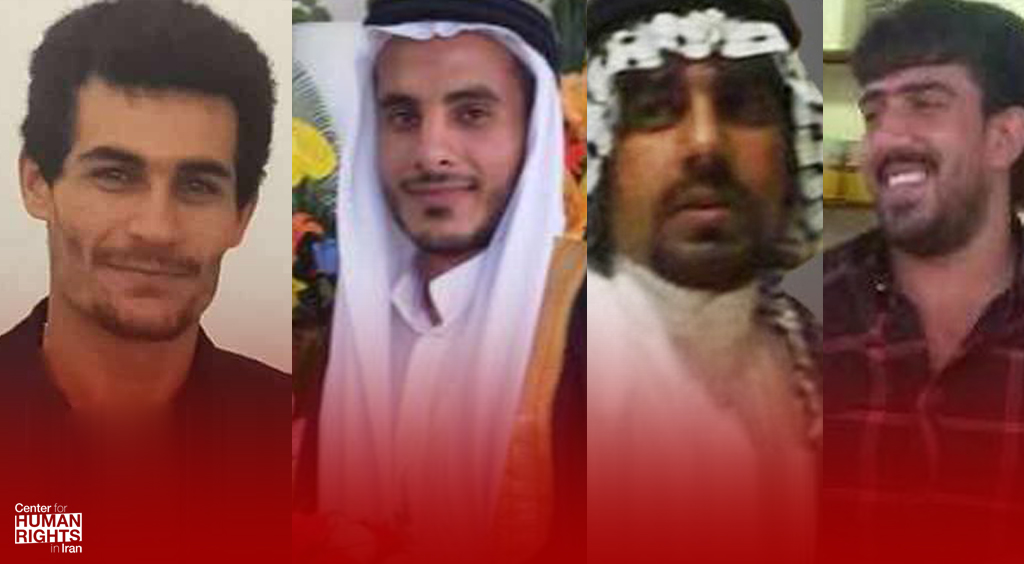
“They Learned of the Executions When the Bodies of Their Children Were Delivered to Them”
Ethnically Arab political prisoners Jasem Heidary, Hossein Silawi, Ali Khasraji, and Nasser Khafajian (Khafaji) were executed inside Sepidar Prison in Ahvaz, the capital of Iran’s Khuzestan Province, on February 28, 2021, without any advance notice provided to their families.
“Security forces had contacted their families and asked them to come to Chahar Shir Sq. in Ahvaz and from there they were taken to meet the victims in Sepidar Prison without knowing that they were about to be executed,” Karim Deyhimi, a human rights activist in Khuzestan and former political prisoner, told the Human Rights Activists News Agency (HRANA) on March 1, 2021.
“The visit only lasted 20 minutes and afterward the families waited near the visitation area and half an hour later they learned of the executions when the bodies of their children were delivered to them,” Deyhimi added.
Arrested by Intelligence Ministry agents in Tehran in December 2017, Heidary was allegedly tortured into making false “confessions” and accused of collaborating with an organization opposed to the Islamic Republic of Iran.
Silawi, Khasraji, and Khafajian were detained by security forces in June 2017 as alleged suspects in an armed attack on a military outpost and a police station near Ahvaz.
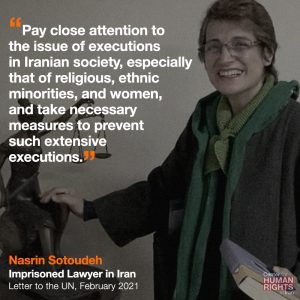 On February 12, 2021, Amnesty International had expressed concern about the imminent execution of Khasraji, Silawi, and Heidary who at the time had sewn their lips together and been on hunger strike since January 23, 2021, in Sheiban prison in Ahvaz, “in protest at their prison conditions, denial of family visits, and the ongoing threat of execution.”
On February 12, 2021, Amnesty International had expressed concern about the imminent execution of Khasraji, Silawi, and Heidary who at the time had sewn their lips together and been on hunger strike since January 23, 2021, in Sheiban prison in Ahvaz, “in protest at their prison conditions, denial of family visits, and the ongoing threat of execution.”
The fourth Arab prisoner, Khafajian, has been missing since April 2020 and is at risk of torture and secret execution, according to Amnesty International.
On January 28, 2021, Iran executed another Arab political activist, Ali Motiri, an alleged member of the terrorist ISIS organization who had been accused of killing two members of the IRGC’s Basij militia in 2018 at the Sheiban Base in Khuzestan.
The latest executions highlight the Iranian judiciary and security establishment’s high rate of death penalty sentences against ethnic minorities in the Kurdistan, Khuzestan, and Sistan and Baluchistan provinces.
Between April and July 2020, Iran executed four Kurdish political prisoners: Mostafa Salimi, Hedayt Abdollahpour, Diako Rasoulzadeh, and Saberi Sheikh Abdollah.
“There’s more concern than ever that under present circumstances there’s a greater chance that more people are going to be executed and more political activists will be arrested,” said Rabin Rahmani, a senior member of the Kurdistan Human Rights Network (KHRN), told CHRI in February 2021.
In addition, there have been several executions of Sunni Muslim Baluch activists in Sistan and Baluchistan Province since December 2020.
Behnam Rigi and Shoaib Rigi were executed on December 19 in Zahedan after being accused of alleged membership in militant Sunni Muslim groups including Jaish ul-Adl and Jaish ul-Nasr.
On December 20, Abdolbaset Khesht, who had been arrested by Iranian security forces in 2012, was executed in the central prison in Dozap.
In January, Hassan Dehvari, Elias Qalandarzehi, and Omid Mahmoudzehi, three Sunni Muslim Baluch political prisoners, were executed in Sistan and Baluchistan Province on January 3, 2021, for the charge of armed attacks on police and collaborating with opposition groups.
In a letter to the UN, imprisoned human rights lawyer Nasrin Sotoudeh implored the international community to monitor executions in Iran.
I ask you, the international community, and human rights activists to please pay close attention to the issue of executions in Iranian society, especially that of religious, ethnic minorities, and women, and take necessary measures to prevent such extensive executions,” she wrote in February 2021 from Evin Prison in Tehran.
Read this article in Persian.


